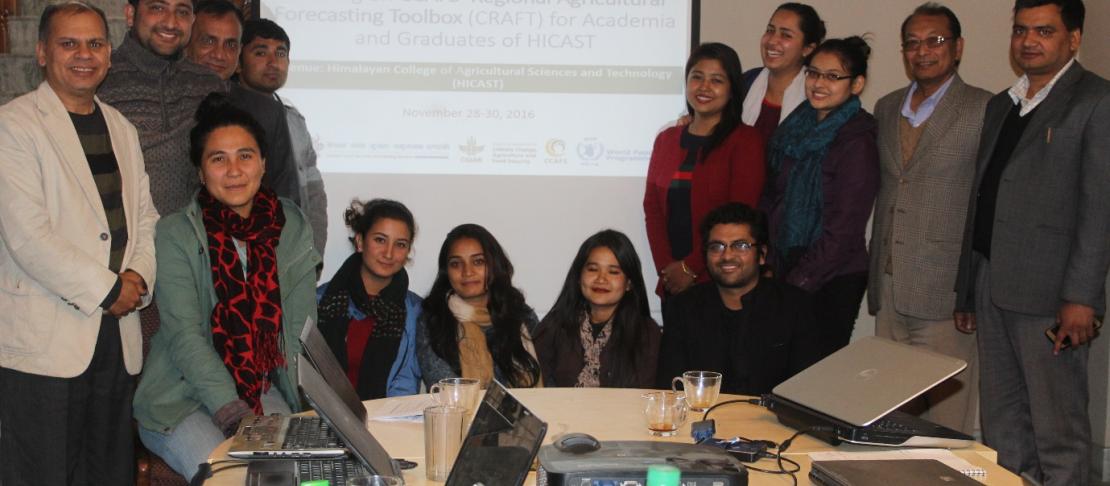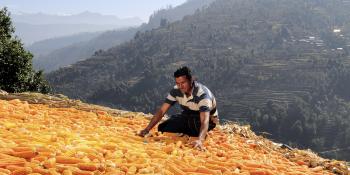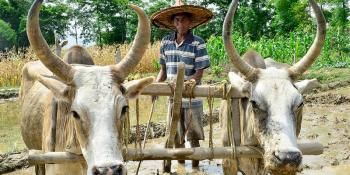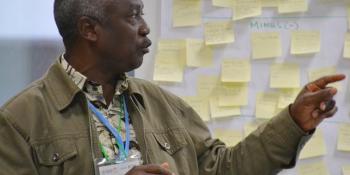Capacity development of government and academia in Nepal for crop yield forecasting

70 participants including government officials, research scientists and agriculture graduates were trained on using CRAFT to mainstream crop yield forecasting in Nepal.
Reliable, scientific, timely and precise crop yield forecasts hold crucial relevance to Nepal where production forecasts are largely based on traditional methods and in most of the cases are available only after crop harvests.
The CGIAR Research Program Climate Change, Agriculture and Food Security (CCAFS) South Asia, United Nations’ World Food Programme and Nepal Food Security Monitoring System (NeKSAP) are implementing an innovative approach for crop yield forecasting. This is helping the government in making early agricultural production forecasts for paddy and wheat crops.
The CCAFS Regional Agricultural Forecasting Toolbox (CRAFT) for South Asia uses historical databases of weather and crop yields and current weather to estimate yields of various crops in advance. It can provide policymakers and stakeholders precise information on the likely volume of crop production in specific areas at different times of the year.
Using CRAFT, the NeKSAP has produced in-season crop yield forecasts for paddy and wheat for the years 2014, 2015 and 2016. The results have been very encouraging. Hence, NeKSAP is now focusing on promotion of the CRAFT tool to further broaden the network and develop capacity of the government, national and research organizations and academia to use the tool, produce forecasts and disseminate the results to relevant stakeholders. This process in the long run will help CRAFT to be sustained within the system for strengthening food security early warning and provide useful insights for in-season risk management in agriculture. So far, four training sessions covering 70 participants have been provided for capacity building.
The first round of trainings has indicated that CRAFT has a very good potential for upscaling in a stakeholder driven coordination approach, with each agency willing to play their part in resource sharing and ownership of results. The Agriculture and Forestry University in Nepal has also expressed a strong commitment to include crop modelling (including CRAFT) in its graduate course curriculum.
Dhiraj Gyawali is Data Analyst at World Food Programme, Nepal. Paresh B. Shirsath is Postdoctoral Fellow- Climate Change Adaptation at CCAFS South Asia.



